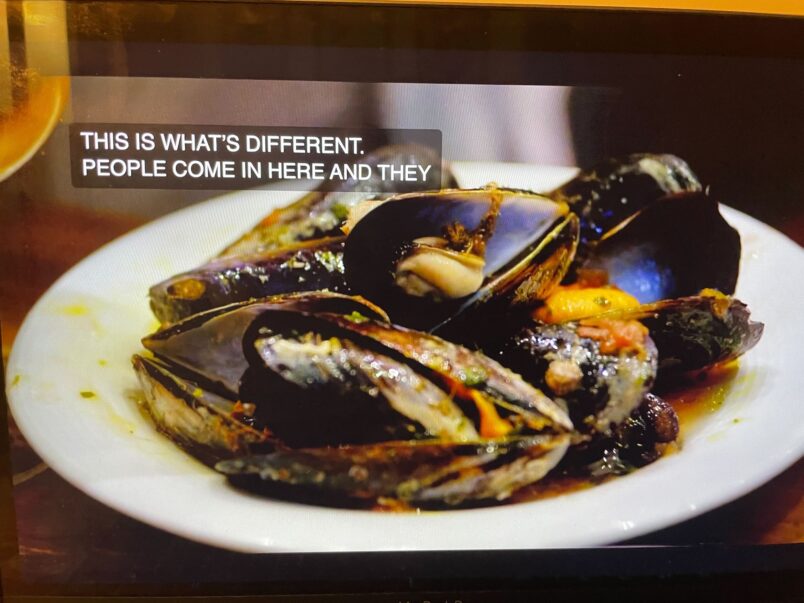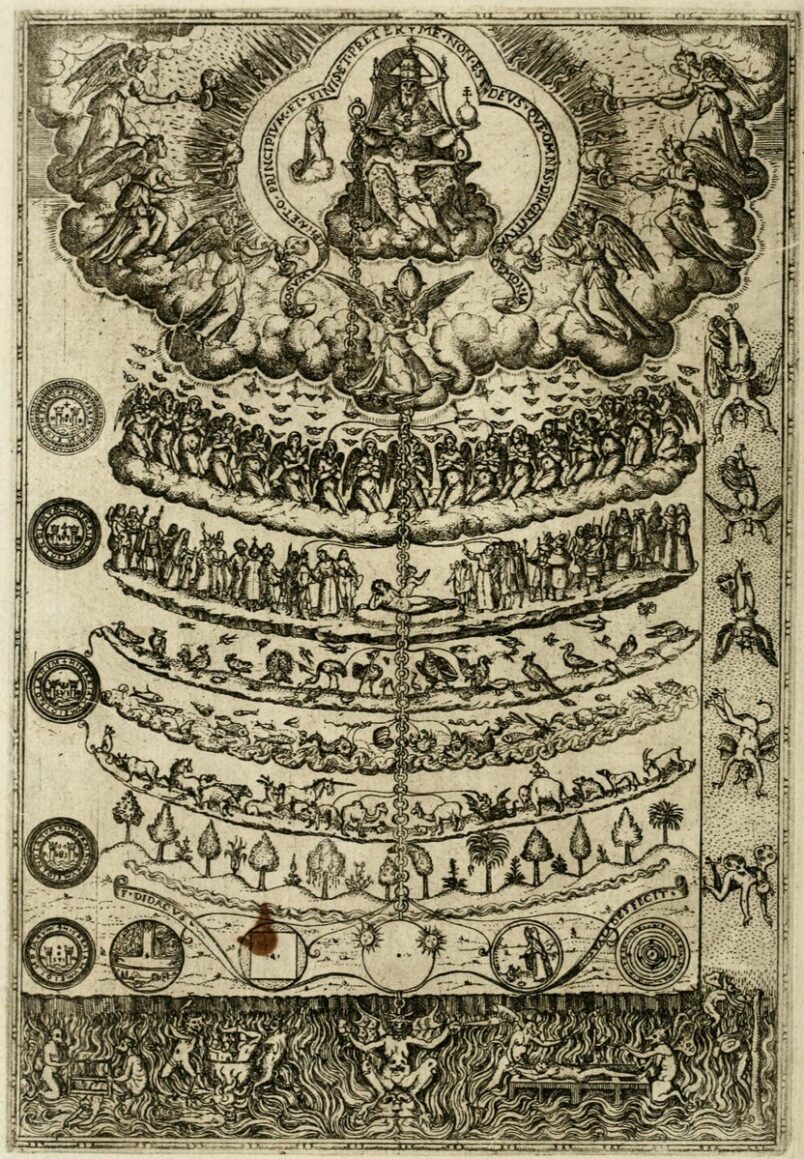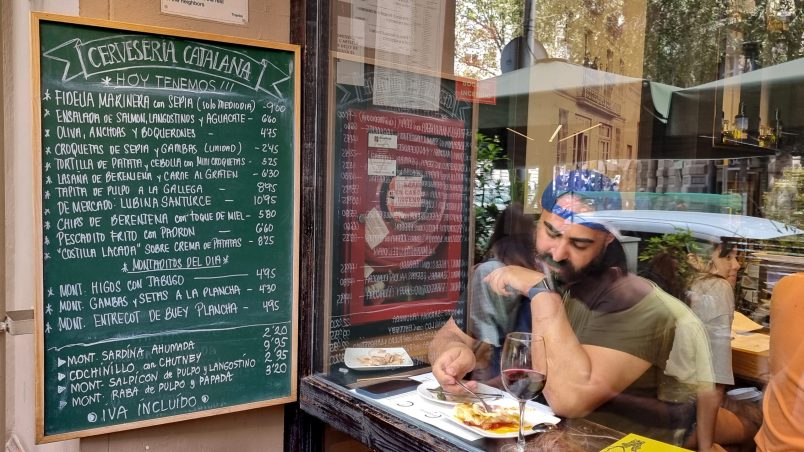This article is part of TPM Cafe, TPM’s home for opinion and news analysis. It first appeared on our publisher Joe Ragazzo’s newsletter, Rhapsody.
I recently had a few too many drinks and purchased all 12 seasons of Anthony Bourdain: Parts Unknown. So, I’ve been making my way through those, in no particular order. The other day I watched the episode in which he visits Spain for the first time, which mostly takes place in Granada during Holy Week. If you’ve never seen the show, first and foremost, rectify that. Second, the format is as follows: Bourdain is led around by someone who knows the area, and especially the food culture. Sometimes this is a friend, sometimes it’s not. In this case it was actually his long-time cameraman who lives in Granada with his wife, who is from there.
Bourdain learns that in Spain, customers don’t pay for tapas, which are small plates of food meant to be shared. Instead, when you buy, say, a glass of wine, you are just given a plate. At one point the host says, “if someone could figure out the math, this would really take off” in America.” Bourdain says, no never. It would be changing the entire culture. Could not happen.
Just to be clear, there is no gimmick here. The glasses of wine were a few dollars. The tapas are not just some peanuts — we’re talking clams, mussels, little lamb chops, cheese, olives, etc. If there is any scheme involved, it’s that they hope eating a small dish or two will induce patrons to order large meals, which unlike tapas are not handed out gratis. But you don’t have to do that.
Now maybe you, the reader, know of a place where you can do this here in America. I don’t. Bourdain did not. I’ve been to so-called tapas restaurants and this was not how they operated. The small plates were there, yes, but you ordered and paid for all of them.
So the question is, why? Why couldn’t this work?

One reason is simply that we have a culture of profit maximization and the restaurant business isn’t any different. But, even if you don’t want to screw everyone, it’s tough. I think back to when I’d go to a place called the Bushwick Kitchen. I got to know the owners pretty well. Once they were telling me how people were complaining that their prices were too high. This was partly because they didn’t have a liquor license yet and that’s really where you make all the money.
But the larger reason was they had to pay rent, they said. I distinctly remember the one guy saying, “Yeah, I could charge less, but then I won’t be able to live anywhere.” This is the flip side of my last essay where I bemoaned large corporations gouging everyone. This is a case where landlords who more or less contribute nothing to society have an outsized role in the prices we pay for just about everything, which of course will squeeze small business owners most of all. When I go to a diner in Manhattan and a club sandwich is twice as expensive as in Brooklyn, that isn’t because bread, roast beef and tomatoes are magically more expensive across the East River. It’s in large part because of rent.
In Spain, landlords are limited in how much they can increase rent. It’s tied to inflation. You can’t raise prices more than the consumer-price index, so if inflation was 5% and your lease was up, the most your landlord could increase the rent would be 5%. Compare that to New York City, where in April, the New York City Rent Guidelines Board suggested a 15.75% increase for rent-stabilized apartments — the ones that are supposed to be protected! If your apartment isn’t rent-stabilized, it could go up by as much as the landlord wants. Fortunately, a preliminary board vote in May signaled increases will be much lower than that.
Now from what I can tell, only seven states in the United States have any form of rent control at all. Meanwhile, 37 states pre-empt or prohibit rent control.
I don’t really have much interest here in arguing about rent policy, specifically. I merely want to draw attention to the fact these are choices we make as a society. We don’t have to allow landlords to have so much influence on pricing broadly. First and foremost, we could prioritize making sure people have affordable housing by building more housing. But building more housing and instituting more protections for renters and homeowners — these are not necessarily things powerful interests are keen on. This is why more states prohibit protections than allow them. Nor is affordable housing necessarily encouraged by the invisible hand. Perhaps most upsetting from a social perspective are the people out there in the NIMBY crowd, like New York State Senator Jack Martins, who see housing plans as “an attack on our suburban communities.” Read into that as you like.
But much, much larger cultural conventions have been toppled in human history. In the Middle Ages, what we now call feudalism was philosophically supported by a concept called the Great Chain of Being. It’s one of these ideas so thoroughly foreign to my modern ears I assumed it was more of an academic abstraction that had been projected backwards, but this is not the case. The Great Chain of Being basically held that there was a natural hierarchy of all things:
- God
- Angelic beings
- Humans
- Animals
- Plants
- Minerals
Each of these categories were then subdivided further. Seraphim were ranked higher than regular angels. Kings were above all humans, nobles were ranked higher than peasants. Men were ranked higher than women. Every facet of life was subdivided this way. This supported and gave logical coherence to a hierarchical society based on privilege and birth. Every once in a while, someone would come along and upset the order and bad things would happen. Like when Richard, 3rd Duke of York, challenged Henry VI for the English throne — leading to the infamous Wars of the Roses between the Houses of Lancaster and York. Suddenly, the lines of succession were challenged and the Great Chain of Being was weakened. Finally, when the Enlightenment took hold of Europe, the Great Chain of Being was irreparably smashed.

Of course, this Great Chain of Being didn’t exist in, say, North America, where people had been experimenting with various social arrangements and governments for thousands of years before Europeans showed up. But the point is, the Chain existed until it didn’t.
Down in Teotihuacan — near modern-day Mexico City — archaeologists and anthropologists are uncovering evidence of a more dramatic social revolution that occurred much earlier. In the Dawn of Everything, David Graeber and David Wengrow explain how around 300 AD the Teotihuacans, after smashing temples and pyramids, “embarked on a remarkable project of urban renewal, supplying high-quality apartments for nearly all the city’s population, regardless of wealth or status.”
If that is too “big” of an example of cultural change, or just too remote, consider a more practical change. My brother, who is a firefighter, was in town for Memorial Day and he was telling me about how Benjamin Franklin’s first fire department required you to have insurance — represented by a little plaque on your home — or they’d just leave and let your home burn down. A similar little scheme propelled the Roman Marcus Licinius Crassus to become one of the richest Romans to ever live. Fires were very common occurrences in Rome, in part because they used olive oil for just about everything from bathing to lighting rooms to dipping bread. So if your domicile was on fire, you had to pay Crassus to put it out.
Today, we expect our firefighters to fight fires regardless of our insurance status. We don’t think that humans are ranked hierarchically by birth (at least, most of us). We don’t have to allow landlords to exert outsize influence over the entire country or leave affordable housing to market conditions. We don’t have to do anything. We just need to remember that none of our policies, none of our customs—nothing is set in stone, however the people who benefit from the current policies will do whatever they can to ensure you think there is no other way. Don’t be fooled. Please, for the love of tapas, do not be fooled.






